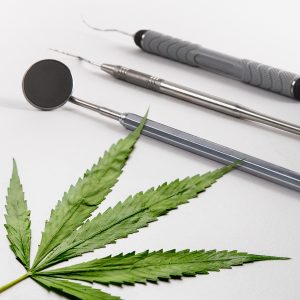
Introduction:
Cannabis/marijuana is a recreational drug causing a euphoric feeling to the consumer. The active ingredient in marijuana is THC, which provides the psychoactive effects.
It can be smoked or vaporized, eaten, or even consumed as a tea. Smoking is considered the most dangerous to your health, due to the high temperature of the inhaled smoke and chemicals contained in the smoke.
“Cannabis smoking is associated with periodontal complications, xerostomia, and leukoplakia as well as increased risk of mouth and neck cancers.”
|
Effects on the Oral Cavity:
- Staining: Staining is one of the most common concerns associated with smoking of any kind. It is primarily a cosmetic concern, as staining involves the discoloration or yellowing of the teeth. This occurs particularly within pits and grooves of the teeth, due to smoke inhalation (though it causes less severe staining than that of cigarettes due to fewer chemicals involved).

- Bone loss: This is the loss of bone structure due to dry mouth and gum disease. It can lead to teeth becoming loose, and falling out or needing to be removed.
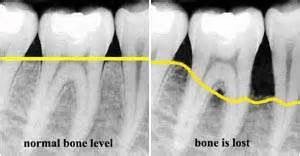
- Leukoplakia: A condition causing thick, white or grayish patches in the mouth, caused by irritation due to smoke inhalation. These areas are generally benign (noncancerous) but their presence increases an individual’s risk for various oral cancers.

- Gum disease: Gingivitis & Periodontitis: Gum disease causes irritation, discomfort, and can ultimately lead to further complications within the oral cavity. The more frequent the marijuana use, the more severe the signs of gum disease due to the high heats & chemicals due to smoke inhalation.
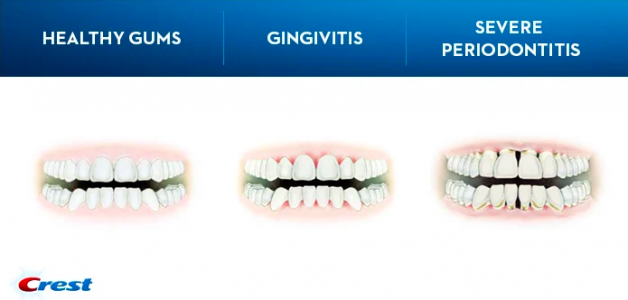
- Xerostomia (dry mouth): the act of smoking dries out the oral cavity. THC activates receptors that block the signals from the (parasympathetic) nervous system and shut down the secretion of saliva. Xerostomia is primarily a problem because the lack of saliva increases a client’s risk of caries.
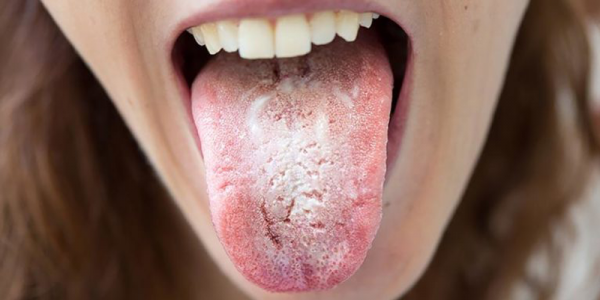
- Increased rate of caries/cavities: due to snacking habits (munchies) and xerostomia.
- “Munchies”: patient will typically snack on foods, which means the increased time your teeth are exposed to sugars
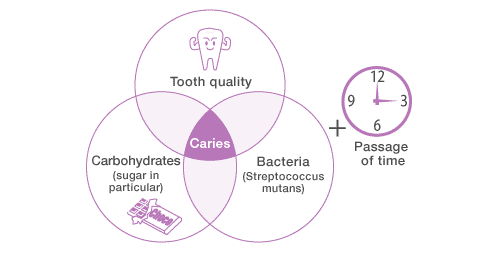
- Gingival enlargement/hyperplasia: The overgrowth of gum tissue around the teeth, caused by poor oral hygiene as well as the high temperatures and chemicals contained in the smoke.
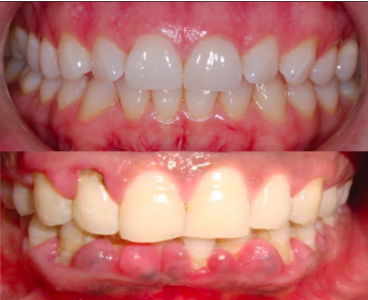
Relation to Dental Appointments / Oral Hygiene Practices:

- Medication or sedation that an individual requires per appointment may be affected: Cannabis can severely affect the effects of the postoperative medications used, anesthetics used during the dental procedure, or any sedation medications the patient may require to calm dentally-related anxieties. It is always imperative to ensure your dentist is aware if you are under the influence of cannabis in any capacity.
- Consent cannot be granted due to the client’s impaired state: Cannabis used prior to a dental appointment can impair judgment as well as the capacity the client has to consent to any procedure it is performed.
- Bleeding may be increased & healing can be hindered: Being under the influence of cannabis can not only cause an increased heart rate and intensify feelings of anxiety, but it may also lead to more excessive bleeding during the dental procedure. This further complicates dental care and can put the patient in potential danger if the bleeding becomes uncontrollable. Healing after a dental procedure also becomes hindered due to the act of smoke inhalation involved with cannabis use, which could ultimately lead to a dry socket (a common complication with dental surgeries), or infection.
- Oral Hygiene Habits: Although oral hygiene habits such as daily brushing and flossing should always be practiced, it is especially important for cannabis users. Regular brushing and flossing, drinking water, and trying to reduce the frequency of smoking can help minimize the risks of potential complications, and leave you with a healthy smile.
Conclusion:
We chose this project due to the recent legalization of marijuana in Canada, resulting in a higher level of use nationally. We felt it is crucial to educate the public about the potential effects of cannabis use, as well as examine how it can interfere with dental appointments. Cannabis, enjoyed on an infrequent basis and in conjunction with good oral hygiene habits should not be overly harmful to your oral cavity, but individuals should aim to consume cannabis in forms other than smoking whenever possible to minimize the harm.
A photo of our Poster Board:
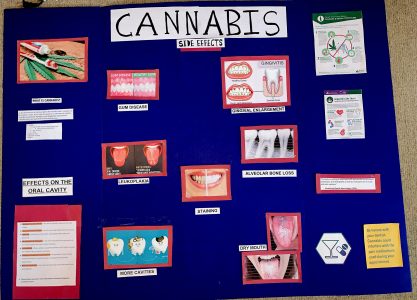
https://www.ada.org/en/member-center/oral-health-topics/cannabis https://www.yourdentalhealth.ca/prevention/cannabis/ https://files.cdha.ca/Profession/OhCanada/OhCanada_Winter_cannabis.pdf https://files.cdha.ca/profession/resources/Cannabis_In_the_Chair_EN.pdf https://www.dentalcare.com/en-us/professional-education/ce-courses/ce460/oral-health-implications-consistent-with-marijuana-use https://www.oralhealthgroup.com/features/marijuana-what-dentists-need-to-know/
